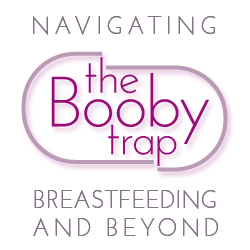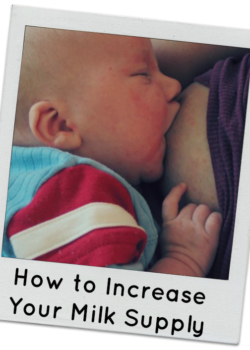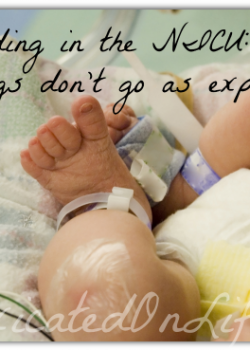There are a lot of factors to making breastfeeding successful. Sometimes it just comes easily and there are few problems; other times it can be quite a challenge for both mother and baby. Skin-to-skin contact between mother and baby has been shown to encourage successful breastfeeding.
How does skin-to-skin help?
Skin-to-skin contact during the first moments of birth for at least an hour after birth have been shown to help baby maintain his/her body temperature and to help maintain his/her heart rate. Another benefit of skin-to-skin contact is that babies have shown to latch on quicker and better. Babies who have had immediate skin-to-skin contact exclusively breastfeed for longer than babies who have not.
Babies who are placed on their mother’s chest right after birth also tend to cry less. It is the natural place for baby to be right after birth. They smell their mother, feel her warmth, and hear her heart beating just like in the womb. Some babies who are placed on their mother’s chest will even root and wiggle around, find the breast, and latch on without any help!
What if my baby isn’t placed on my chest right after birth?
There is no reason why a full term baby should not be placed on mother’s chest right after birth, but sometimes things happen and it just doesn’t work that way. Don’t give up on a successful breastfeeding journey if your baby is unable to be placed on your chest right away.
Once you do get the chance to hold your baby, put him/her on your chest then, with their skin touching yours. Skin to skin can be helpful even if it is not right after birth. Do this as often as possible for as long as possible to help baby maintain their heart rate, body temperature, and oxygen levels. Also, try nursing as often as possible while you are doing skin-to-skin. If baby doesn’t want to nurse, that’s ok, just try again later.
Anyone can do skin-to-skin with baby. If mommy is having complications or cannot do it for some reason, daddy can put baby to his bare chest also. Now of course, baby won’t be able to breastfeed with someone else, but it will still bring on all the other benefits skin-to-skin creates and can in turn promote a healthy breastfeeding relationship between mom and baby.
Don’t lose hope if you are unable to do skin-to-skin right after birth. You can still go on to breastfeed successfully. Seek help from a lactation consultant. Keep your baby close and nurse as much as possible in those first few days.
My Experience
When I gave birth to my first son, there were a lot of people in the room right after. Not knowing the benefits of skin-to-skin, I didn’t even think about doing it after he was born. I wanted to breastfeed and did try for a few minutes after he was born, but then I gave him to his father to hold, and all of my family members passed him around. He was then whisked away for a bath.
We had a total of maybe 10 minutes of skin-to-skin and closeness together right after birth. Breastfeeding him was a struggle right from the beginning. He screamed the first night at home because my milk hadn’t come in, and I didn’t know what to do. He later came to much prefer the bottle over nursing and I eventually gave up at 4 months.

One of my friends told me to have them put him on my chest right away and leave him there on my bare chest for as long as I could. She told me to not even let them give him a bath until later.
When it came time for Isaac to be born, I told all the nurses I wanted to breastfeed and I wanted to do if right after he was born and not to take him unless they absolutely had to. When he was born, they laid him on my chest and did everything they needed to right from there. He laid on my skin for a few minutes and then I put him on my breast. He latched on right away and nursed for almost a half hour!
After that I let my husband hold him for a few minutes and then put him back on my chest. He then nursed again! He was on my chest for a little over an hour before we had to be moved to another room. Once we were settled into our new room I put him back on my chest and nursed him as often as he wanted. Isaac went on to nurse successfully for another 14 months without any major issues.
When skin-to-skin is possible there are so many benefits. Even when babies are born premature and cannot nurse from the breast the nurses encourage skin-to-skin because the benefits are so great. If and when you get the chance for skin-to-skin with your baby, whether it is right after birth or a few days later, take that chance and enjoy every minute of it!
. . . .
We encourage you to submit any question you have about breastfeeding or topics you would like us to cover in this series. Leave a comment on any post in the series or submit your question/topic privately using this form.








I love that moment right after birth when they lay the baby on me and we get to snuggle and be warm and cozy. They always want to nurse right away and it’s just amazing to see their instincts kick in!
When my daughter was born, she was immediately placed on my bare skin. That moment was priceless for me!
I was upset at the hospital staff when my first child was born, because my baby always had to be whisked away for some reason or another (nothing serious) so my skin to skin contact was very limited. The nurses thought that I would fall asleep while holding him in bed too…I actually had great difficulty with the whole breastfeeding process with my first. My second child was born in a different hospital and gave me my little boy almost instantly and they let me hold him as much as I wanted. I was also less depressed postpartum too 😉
My little one is due at the end of April. We’ll see how this works. 🙂
What a beautiful picture! I still remember that feeling the day my daughter was born – pure bliss (and some fear lol). You make such a good point about the first hour of their life and the importance of skin-to-skin. Being my first, I wanted to jump for joy and just share her with the entire family as soon as she was born. We invited everyone in about 15 minutes after she arrived and I missed out on crucial bonding time. She had difficulty latching for a good month, and I wonder if I had spent that first hour or her life just the two of us, if we could have avoided a month worth of breastfeeding challenges. The good news it that even with all of the challenges, I am still breastfeeding 6 months later!
That is fantastic that you’re still going. There is no way to know whether you could have avoided the challenges, but you certainly have gotten a lot of special bonding time with her just for being available to breastfeed her since then. I was not able to have skin-to-skin contact immediately after birth with any of my kids because they’ve all been born premature. They all ended up being fabulous nursers though!
This is excellent, I agree that skin-to-skin contact as soon as possible after birth is so essential!
Thanks for linking up with the Tuesday Baby Link-Up, be sure to check out this week!
Nearly all babies get diarrhea worse at some point, but most cases aren’t serious. Mostly severe diarrhea is caused by a viral infection and will go away on its own. Diarrhea, however, is sometimes a symptom of something more serious. If your baby has diarrhea that lasts for more than a few days or if he or she has other common symptoms, such as fever, vomiting, food poisoning, gas problem, or blood in the stool, call your doctor.
Diarrhea is the second leading cause of death in 5-year-old children. In developing countries, 90% of deaths are caused by diarrhea.
https://www.k2babycare.com/how-to-stop-diarrhea-in-babies-fast/